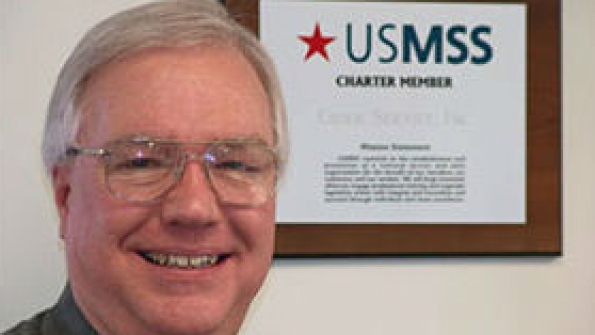Sound off: Late TRNI Chairman Dave Robison discusses challenges associated with dealer succession, consolidation
What is in this article?
Sound off: Late TRNI Chairman Dave Robison discusses challenges associated with dealer succession, consolidation
Some of the big challenges in the radio-dealer industry are succession plans amid a trend of increased consolidation in the dealer sector. During the Wireless Leadership Summit in October run by the Enterprise Wireless Alliance (EWA) and USMSS—now known as Technology Resource Network, International (TRNI)—USMSS/TRNI Chairman Dave Robison spoke with IWCE’s Urgent Communications Editor Donny Jackson about these issues and how they impact the way dealerships are valued.
Editor’s note: Robison died unexpectedly on Dec. 5 (click here to see article by TRNI Executive Director Bill Dow). All of us at IWCE’s Urgent Communications want to express our condolences to Robison’s family, friends and colleagues for their loss. We’d also like to extend a special thanks to Dow, who checked with Robison’s family and friends to get permission to run this article. After this insightful 20-minute interview, I knew that Robison was someone I wanted to get to know better in the future. I’m very sorry I didn’t have a chance to make that happen.
What are some of the challenges that dealers—particularly those seeking an exit strategy—face today, when there is so much consolidation in the market?
“One of these issues that a small service shop faces when you try to establish a valuation for the business is that you [a service-shop owner] pretty much don’t own anything.
“If you invested in towers, then you have real estate, and you own that. But, what you might typically think would be in a transaction—where you would sell your service agreements and customer relationships—the shops don’t own those. If they came from Motorola, they don’t own them, and they have to have Motorola’s permission in order to sell those to somebody who would take those over.
“That presents a huge, huge roadblock in establishing a valuation for a [radio shop] business.
“So, when you look at [a dealer shop], your service equipment has value—your assets to have a certain amount of value—but, in any kind of sale, it’s going to be heavily depreciated. The stuff is anywhere from 2 to 30 years old, so it’s heavily depreciated. And some of these shops do not own the buildings that they are in, so you don’t have that to use as leverage.
“So, it makes selling the business a very difficult proposition, because it makes putting a value on it a very hard thing to do.”
Is it any easier if there is a family-succession plan or the employees take over the business?
“In a family business, if your plan is to move it to family members, that’s probably the easiest transition—at least it’s conceptually the easiest; emotionally and practically, it may not be. But, at least in terms of transfer of assets, movement of wealth and the normal succession issues, that’s relatively simple.
“Selling it is not easy. And a lot of them transfer it to employees. They’ll either create an ESOP—where employees can own stock in the company and then, over time, essentially acquire the company.
“There are still no guarantees. But in that situation, you have a much greater probability that it would be approved by Motorola … I doubt seriously that there would be any issues there, because it’s the same people doing the same jobs with the same customers.”










